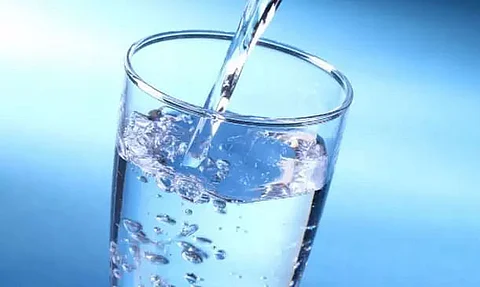
- Home
- Live Blog
- Breaking News
- Top Headlines
- Cities
- NE News
- Sentinel Media
- Sports
- Education
- Jobs

Water, it is said, is life. That probably was why the government decided to call the most important water mission Jal Jeevan Mission, JJM in short. Jal Jeevan Mission is envisioned to provide safe and adequate drinking water to all households in rural India by 2024 through individual household tap connections. The programme will also implement source sustainability measures as mandatory elements, such as recharge and reuse through greywater management, water conservation, rainwater harvesting. Jal Jeevan Mission is supposed to be implemented through a community approach and includes extensive Information, Education and Communication as the key mission components. Going by the official website of JJM, one comes to learn that the Jal Jeevan Mission looks to create a Jan-Andolan or people's movement for water, thereby making it everyone's priority. The vision statement of the mission is that every rural household across the country has a drinking water supply inadequate quantity of prescribed quality on a regular and long-term basis at affordable service delivery charges leading to improvement in living standards of rural communities. And when one looks at the components of Jal Jeevan Mission, one gets to discover so many interesting things that the people must know. These include (i) development of in-village piped water supply infrastructure to provide tap water connection to every rural household, (ii) development of reliable drinking water sources and/ or augmentation of existing sources to provide long-term sustainability of water supply system, (iii) wherever necessary, bulk water transfer, treatment plants and distribution network to cater to every rural household, (iv) technological interventions for removal of contaminants where water quality is an issue, (v) retrofitting of completed and ongoing schemes to provide FHTCs at minimum service level of 55 lpcd, (vi) grey-water management, (vii) support activities, i.e. IEC, HRD, training, development of utilities, water quality laboratories, water quality testing & surveillance, R&D, knowledge centre, capacity building of communities, etc, and (viii) any other unforeseen challenges/ issues emerging due to natural disasters/ calamities which affect the goal of FHTC to every household by 2024, as per guidelines of Ministry of Finance on Flexi Funds. It is common knowledge that the drinking water scenario across Assam is far from satisfactory. While government water supply schemes have been mostly faulty and inadequate, water quality is a serious issue. Yet both these issues have been neither taken up by the various organizations well-known for launching an agitation at the drop of a hat nor by the hon'ble elected representatives – whether in panchayats, Assembly or Parliament. Academicians and intellectuals have by and large failed to highlight these issues. The end result is that the common man – the voter – is the ultimate loser. Union Jal Shakti Minister Gajendra Singh Shekhawat on Thursday had expressed confidence that Assam will be able to meet the target of the Jal Jeevan Mission (JJM) even before the 2024 deadline. Shekhawat, after reviewing the status of the progress of implementation of JJM in the North Eastern States has said that even though Assam was lagging in the execution of the scheme, implementation has of late gathered momentum. Chief Minister Dr Himanta Biswa Sarma on his part has said that Assam has made significant progress in the implementation of the Mission in the last three months and has speeded up the implementation so that the 2024 target could be met. According to Assam PHED Minister Ranjeet Kumar Dass, within 2024, altogether 63.35 lakh households will get piped water across Assam under Jal Jeevan Mission, and that the target in the current month (September) is to cover 2,29,000 households. In the present fiscal (2021-2022), 22 lakh households will be covered. During 2022-2023 fiscal, the PHE will provide 20 lakh connections; and in the final year of the scheme in 2023, the target will be to provide tap water to the remaining 13 lakh households. These are not just formal announcements, but also vital commitments. It is for the Chief Minister to ensure that these commitments are met, and met without leaving any scope for the people to complain that water was yet to reach them.